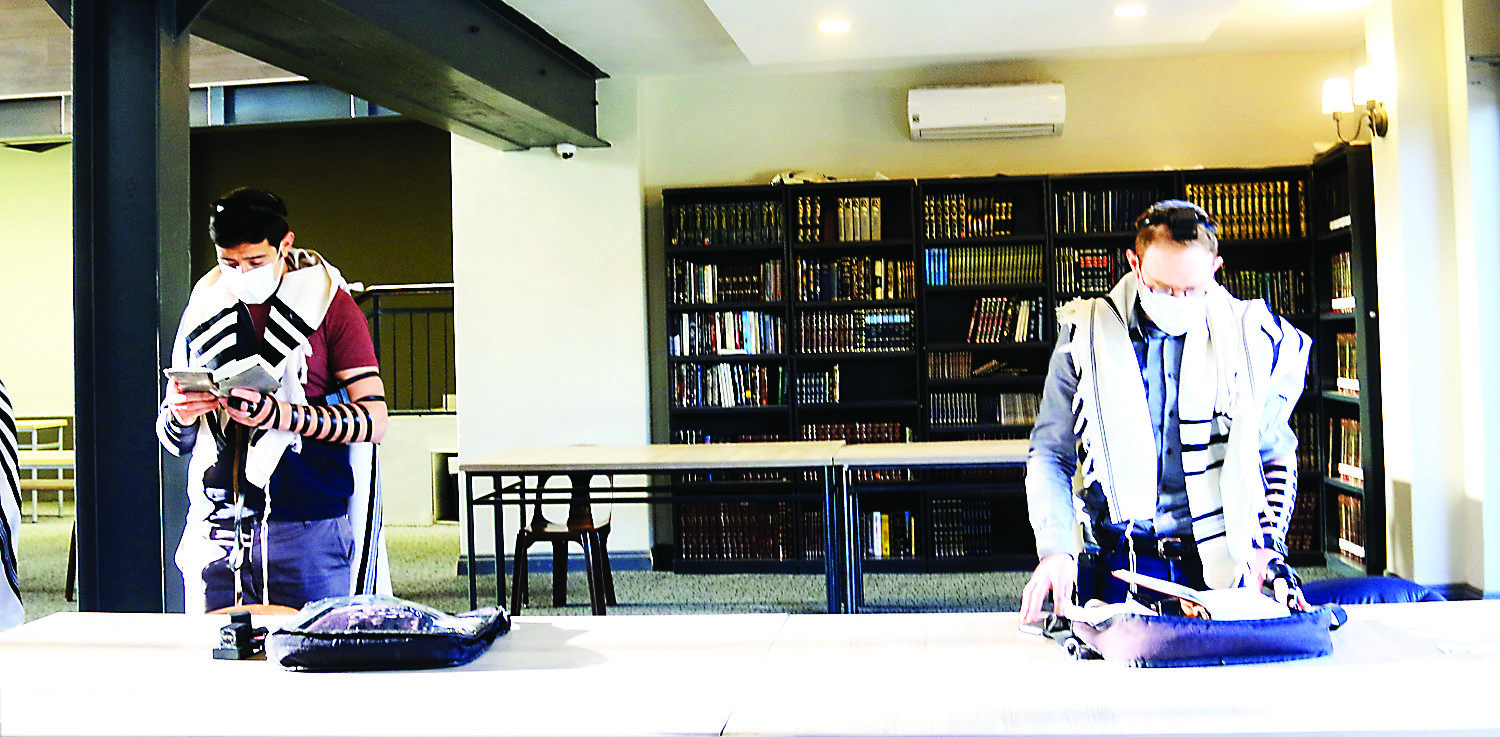
Featured Item

Criticism for second shul shutdown in 10 months
Published
3 years agoon
By
Jordan MosheFor the second time in 10 months, shuls have had to close their doors as COVID-19 rampages across the country.
While most within the community have accepted the restriction in the face of an overwhelming second wave, the closures have drawn some criticism from those not willing to give up their regular minyanim.
President Cyril Ramaphosa announced two weeks ago that the country would move to lockdown level three as infections rose sharply during the holiday season. This included the reintroduction of the ban on religious gatherings, closing shuls that had reopened in October last year.
Although the ban was initially set to end later this week, Ramaphosa extended it in his address on Monday evening.
The closure of shuls is a necessity in the fight against the virus, says Chief Rabbi Dr Warren Goldstein.
“With the introduction of regulations and the extension, the president is looking not just at shuls but all places of worships across the country,” he told the SA Jewish Report this week. “His decision is driven by factors going way beyond our own community.
“We cannot judge the decision in terms of our own shuls, which have done amazingly well and remained as safe as possible,” the chief rabbi says. “We need to recognise that we are citizens of this country and are committed to upholding the law so as to ensure that every person around us is safe.
“It’s sad for us. We love our shuls. They are part of our lives, but we have a responsibility to promote health, safety, and support the fight against this disease.”
Goldstein commended the shuls and their rabbis for their commitment to caring for their members and adhering to protocols.
“They were incredible in their dedication to the protocols,” he says. “People appreciated it, and many felt that, outside their homes, the shuls were the safest places to be.”
The chief rabbi also paid tribute to Ramaphosa, saying that the president had given great consideration to the input from religious leaders from across the spectrum at an interfaith meeting held this past Sunday before Monday’s announcement.
From a health perspective, the closure of shuls is imperative, says emergency medicine expert Professor Efraim Kramer.
“We should actually be in a level-five lockdown at this point,” he says. “We can’t do that economically because the country would collapse. This second wave is far worse than the first, and almost every other country has gone into lockdown with lower numbers.”
Businesses, restaurants, and other hubs of economic activity are open only out of economic necessity, Kramer stressed.
“They aren’t safe just because they’re open,” he says. “If you’re not out working, you should be staying at home. People don’t seem to understand that. The closure of shuls isn’t about them being more or less safe. Unfortunately, they aren’t economic spaces, and need to stay closed.
“You cannot complain about a measure that’s in place to keep us alive. If we carry on the way we’re going with the highest death rate we’ve ever seen, how can we go back to normal? We have no right to make such a demand, no matter how safe we feel our shuls are.”
While most shuls have closed their doors, some disagree with the president’s decision. This includes Sydenham Shul’s Rabbi Yossy Goldman, who recently penned an open letter expressing support for the president but also maintaining that shuls should remain open as they are among the safest places because of their strict protocols.
“I felt strongly that there needed to be protest against the fact that shuls were closed down yet again,” Goldman told the SA Jewish Report. I was bothered that our community, including our leadership, could be blasé about shuls closing. We’ve become nonchalant about it.
“It’s become a new norm. Of course, you can daven at home, but the shul is the heartbeat of Jewish life. As special as Zoom minyanim have been, I had to make the point that we cannot become accepting of change.”
Goldman maintained that shuls are far safer than casinos, restaurants, and cinemas, which have been allowed to remain open, and said the ban on religious services shouldn’t be a blanket ban.
“It’s almost an inconsistency of the regulations,” he says. “Also, psychological, spiritual, and emotional well-being are as important as economic well-being. We need our shuls more than ever before.”
Rabbi Yossi Chaikin, the rabbi of the Oxford Synagogue Centre and chairperson of the Rabbinic Association, also worries that it will be challenging to encourage people back to shul when they reopen.
“We’ve done a good job of telling people to stay home and daven, but that’s backfiring on us now,” he says. “People have taken to staying home, and it’s become a habit. It’s getting progressively harder to get people back to shul. I hope we don’t struggle in the long run.
“We’re being challenged as rabbonim. We need to reinvent what shul means and change our approach to the relationship with congregants. The role of rabbi has shifted.”
Not all minyanim have opted to shut down, however.
A minyan operating within the Glenhazel area has been operating since March 2020, and although it has moved a few times, it has operated consistently over the past 10 months.
At times held outdoors, the minyan usually has a maximum of 15 men. Those who attend maintain that the complete shutdown of a minyan is too drastic, relying on precedents found in rabbinic responses during previous pandemics in history to guide their decision.
“It never occurred to Rabbi Akiva Eiger that minyanim should be shut down,” said a representative of the minyan who asked to remain anonymous. “It was always a matter of taking reasonable precautions and getting on with life.
“I’m not aware of any response that they wrote urging that life be shut down. There has never been a situation in which Torah authorities called for such drastic measures.
“Our members are resolutely determined to daven in a minyan. The response to COVID-19 around the world and in our community has been a fiasco. We have attacked a cockroach with a bazooka and seem unperturbed about the fact that the bazooka killed two people, injured 20 others, demolished the house, and started a fire next door, all while missing the cockroach.”
He argues that the response of the Johannesburg rabbinate has been “spectacularly out of proportion to the threat posed by COVID-19”.
“Last year, when South Africa moved to level three, and religious gatherings were permitted, there was no justification whatsoever for keeping shuls officially closed. One need not be an epidemiologist to know that simple mechanisms can be put in place to ensure people’s safety.
“There is no medical reason – and certainly no religious reason – to suspend minyanim. That decision was motivated by fear and ignorance rather than prudence.”
He was equally critical of the government’s latest announcement, saying that it made no sense to ban religious gatherings while keeping other facilities open.
“It doesn’t take a genius to realise that there is no rhyme or reason to this,” he concluded. “Whether the government’s move is a deliberate attack on religion or simply another instance of ANC [African National Congress] stupidity and incompetence is immaterial. We will continue to daven in a minyan.”










